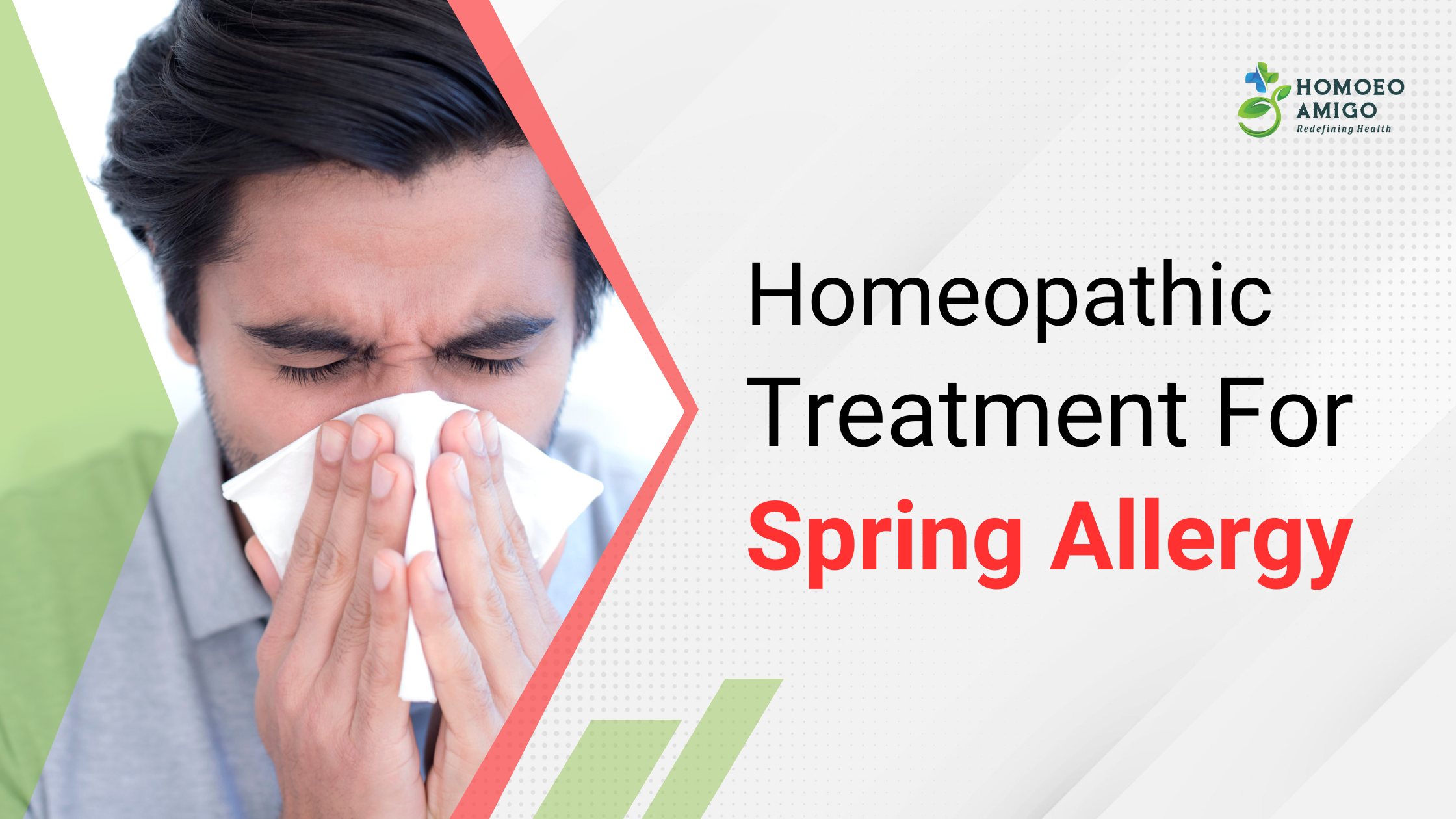As the weather changes, trees, grasses, and weeds release fine aerosol particles called pollen to fertilize other similar plants. However, pollen entering the nasal pathways could cause pollen allergy—with symptoms somewhat similar to the common flu and cold. As climatic variability increases, the urban environment is expected to significantly add to the burden of pollen-related respiratory and skin diseases. To address these issues, consider homeopathic treatment options for relief and management.
Diseases that Can Occur During the Spring Season
In spring, diseases such as asthma, rhinovirus, flu, Lyme disease, gastroenteritis, strep throat, allergic conjunctivitis, and insect allergies are prevalent.
- Asthma
Asthma triggers include pollen, temperature changes, fertilizers, and insect repellents, which are abundant outdoors during this season. Additionally, indoor triggers such as dust, mold, and cleaning chemicals can also contribute to asthma symptoms. Asthma, being a chronic respiratory condition, can pose life-threatening risks, necessitating individuals with asthma to have a prepared emergency plan in case prescription medications fail to decrease breathing difficulties.
- Rhinoviruses
Rhinoviruses, responsible for approximately 50% of all colds, spread easily during the spring, making regular hand washing and avoiding touching the eyes, nose, and mouth essential preventive measures. The flu remains a concern despite the warmer temperatures of spring, as flu viruses flow in moist conditions. Therefore, maintaining hand hygiene, especially while traveling, is crucial for preventing its spread.
- Lyme Disease
Lyme disease-transmitting ticks are more active in warmer and wetter spring weather. Avoiding walking in tall plants and using tick repellents when outdoors are effective strategies for tick avoidance.
- Gastroenteritis
Gastroenteritis, caused by noroviruses, also favors warm weather and is highly contagious. While symptoms typically last only 1-2 days, affected individuals remain contagious for up to 3 days after symptom resolution. Proper hand washing and sanitation practices are imperative for preventing stomach viruses, along with maintaining a healthy immune system through nutritious, vitamin-rich meals.
- Sore Throat
Strep throat, easily transmitted through coughing, sneezing, and contact with contaminated objects, underscores the importance of preventive measures such as carrying disinfectant wipes and hand sanitizers when in public places. Allergic conjunctivitis, characterized by red or pink, watery eyes, may be mistaken for an infection. Seeking medical evaluation can help differentiate between allergic reactions and infections.
- Insect Allergies
Insect allergies can result in pain, redness, itching, and minor swelling around the bite or sting site, which typically resolves within hours or days. However, severe allergic reactions, known as anaphylaxis, require immediate medical attention to prevent life-threatening complications. Anaphylactic symptoms may involve multiple organ systems, including the skin, mouth, lungs, heart, and intestines
Practical Tips for Incorporating Homeopathy into Daily Routines
- Homeopathic medicines are derived mainly from plants, minerals, and animals, making them safer than other medical treatments.
- They are given in minute doses, ensuring they are non-toxic and safe for people of every age group.
- Homeopathy is fast-acting and effectively treats diseases from their root cause, restoring optimal health.
- Medicines which are derived from natural resources are effective for both chronic and acute diseases.
- Homeopathic treatment aims at removing and curing the root cause of ailments, providing long-term relief.
- Unlike allopathic treatments, homeopathy improves immunity by stimulating and restoring the body’s vital energy to heal.
- Intake of homeopathic medicine energizes the immune system, protecting individuals from future troubles.
- Homeopathy also serves as a preventive measure to maintaining a healthy safe and preventing various ailments
The Connection Between Immunity and Allergies
- When an allergen enters the body, the immune system identifies it as a threat and releases antibodies to fight it.
- These antibodies trigger the release of histamine and other chemicals, resulting in allergic reaction symptoms like itching, sneezing, and swelling.
- The immune system’s exaggerated response to allergens can lead to chronic inflammation, which can contribute to conditions like asthma, eczema, and increase the risk of certain cancers.
- Allergies can weaken the immune system’s ability to fight infections by constantly activating it to combat allergens.
- This constant activation can exhaust the immune system, making it less effective against other pathogens and increasing susceptibility to infections like colds and flu.
- Overall, allergies significantly affect the immune system in both the short-term and long-term.
- While allergies cannot be cured, they can be managed with treatments such as antihistamines, immunotherapy, and decongestants.
- Avoiding exposure to known allergens and maintaining a healthy lifestyle can also help improve overall health and reduce the risk of developing allergies.
Tips for a Healthy Spring Season
Regular hand washing can prevent the spread of respiratory infections. If you’re prone to allergies, consult with a homeopathic clinic for appropriate homeopathic medicine and management strategies. Enjoy outdoor activities but be careful of potential risks. Protect your skin, stay hydrated, and be careful in unfamiliar outdoor environments. Follow proper food handling practices to prevent foodborne illnesses during outdoor gatherings. Use sunscreen to protect your skin from harmful UV rays and also be aware of potential irritants in plants.


0 Comments